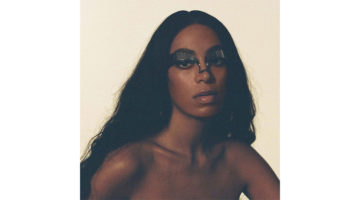By Joey Thyne
The Weeknd came into the spotlight in 2011 when he contributed to Drake’s “Take Care.” The next year, the Canadian singer released three mixtapes — “House of Balloons,” “Thursday” and “Echoes of Silence” — together under the title “Trilogy.”
He was a part of a generation of R&B singers in a post-“808s and Heartbreak” hip-hop landscape, marked by their moody sonics. The Weeknd in particular drew attention for his poignantly druggy and sensual imagery.
In 2015, he sold his soul to the Billboard Hot 100 with “Beauty Behind the Madness,” releasing songs about cocaine that middle schoolers could sing along to. Cynicism aside, it was a behemoth of a success, and that level of pop songwriting is admirable. It was his “Thriller,” with six separate singles charting. While the album was mostly a departure from his old sound, a few of his darker tones remained like on “The Hills.”
In the past year, his signature falsetto was applied to songs by artists such as Beyoncé, Kanye West and Future.
The Weeknd returned once again on Sept. 21, with his iconic locks chopped off to drop the title track of his upcoming album, “Starboy.” The single got an instant flash pass to radio oversaturation.
The song is the thesis statement of the album and represents what The Weeknd sets out to accomplish: a catchy melody and danceable rhythm at the expense of any substantial storytelling.
This isn’t always a bad thing. While listening, it’s difficult to resist head-bobbing. The production sounds clean. His voice hits all the right notes.
“Sidewalks” is a groovy jam with wailing guitar and a reliably solid verse from Kendrick Lamar. “True Colors” has a laid-back, ethereal instrumental.
Daft Punk lends its production on a couple of songs, reminding listeners that the group’s trailblazing electro-funk is timeless.
Lana Del Rey and The Weeknd collaborating makes sense: both have garnered prosperity through a pouty mystique. On their song “Stargirl Interlude,” they sing out to one another as star-crossed lovers.
“I Feel It Coming” and “Rockin’” are guaranteed to get overplayed on the radio within a matter of months until listeners collectively bleed from their ears.
In his early work, he expressed a unique point of view from a hungry artist immersed in a treacherously hedonistic party culture. That has now been replaced by brags of his material gains since blowing up and overly sexualized depictions of women.
This detached misogyny is contrasted by the cliched lyrics in all of the filler ballads. “The distance and the time between us / It’ll never change my mind, ’cause baby / I would die for you” he sings on “Die for You.” “I ask you what your heart desires / My love, my love / You tell me I’m the only one / My love, my love” he sings on “Secrets.” “I’d be nothing, nothing, nothing, nothing without you / Nothing, nothing, nothing, nothing” he sings on “Nothing Without You.”
At 18 songs and over an hour in length, “Starboy” overstays its welcome. Meandering from the hyper-punk of “False Alarm” to the disco of “A Lonely Night” to the trap of “Party Monster,” it works more as a lopsided playlist.
Ultimately, “Starboy” is even more diluted than “BBTM.” If “BBTM” were an epic, albeit gluttonous, Thanksgiving feast, then “Starboy” is the insipid mashed potatoes Tupperwared in the fridge days after. Regardless, it has already broken streaming records and will most likely continue to do so.
The Weeknd no longer seems to have his heart in it, more interested in money than artistic gratification. Abel Tesfaye now has the mentality of a businessman — a mogul promoting his brand — and will continue diligently releasing generic and formulated products every year to much avail.













